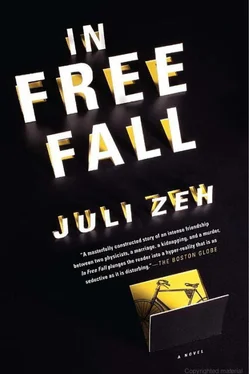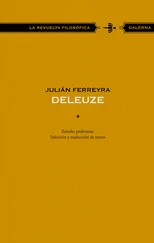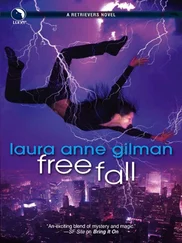“Second!” Rita screams after him. “No smoking in my office!”
The detective’s laughter is visible in his receding back.
CHAPTER 5
The detective superintendent solves the case but the story does not end.
FREIBURG IS ONLY HALF AWAKE at ten o’clock on a Saturday morning. The lanes are still in shadow, and the tables and chairs of the pavement cafés around the cathedral bunch together as if they fear the weekend crowds about to descend. The waitresses walk between them like shepherds, shooing chairs into place, patting tables on the back and putting ashtrays on them.
The detective has never much liked Freiburg. The people seem too happy to him, and the reasons for their happiness too banal. It smells a little of holidays, especially when the sun is shining. Students are lifting their behinds onto hand-painted bicycles. Married women festooned in batik make their way to their favorite boutiques. A traffic jam of strollers has already formed outside a health food shop. No one here seems to feel the need to ponder the meaning of life. The detective superintendent sees only one face with a skeptical expression. It belongs to the blue and yellow macaw in a large cage next to the postcard stand outside a photo shop. The bird gazes at the detective so piercingly that he chooses a wicker chair nearby.
“My name is Agfa,” the parrot says.
“Schilf,” the detective says.
“Look out,” the parrot says.
The detective waves away a schoolgirl with green hair who is asking him for a euro even though she is wearing designer jeans and has a Dalmatian on a leash. Schilf is about to tell her that one cannot enjoy the practical advantages of wealth and the moral advantages of poverty at the same time, but the girl tells him where, in her opinion, he ought to go. Schilf grimaces. In ugly towns like Stuttgart, people at least admit that they have struck the jackpot in the lottery of life.
“We’re not open yet but you can sit there,” a waitress calls to him. She is placing menus on the tables with mechanical movements.
Schilf waves a hand casually in thanks. The waitress is not much older than the schoolgirl. She is wearing a headscarf with skulls printed on it, flip-flops, and a miniskirt so short that her pink underwear shows when she bends over. Schilf unrolls a bunch of papers and spreads them over the table. In her office, without a word, Rita had slammed down the physicist’s file onto the corner of the desk she had designated as Schilf’s workspace by pulling up a plastic chair. Schilf handed the papers to a passing officer to photocopy so that he would not have to take special care while reading them.
Despite years of experience, Schilf feels a slight shudder at the sight of a human fate turned into paper. Every file he opens is an intersection of his life and that of an unknown person. It will never be possible to untangle the threads that weave themselves together from the moment he starts reading.
Not for one second has Schilf doubted which Freiburg physicist was involved in the kidnapping case. The photo of a smiling Sebastian lies in front of him as he reads through the statement taken by Sandström.
The car had not simply disappeared. It had metamorphosed into a nothingness of a certain kind, into the terrible bequest of an event that should not have happened. Did you know, Herr Sandström, that there is an astonishing number of things that we believe will never happen? We are as convinced that these events will not happen as we are that the earth revolves around the sun. Our own death is one of these things. And the disappearance of a boy like Liam is another. When something like that happens, the world goes out of kilter. (A comment in Sandström’s nervous handwriting: The witness starts screaming .) You, Herr Sandström, you have to fix that. That’s your job. Do you see?
Schilf is certain that Sandström has not understood the witness. But he, on the other hand, does understand him. Sympathy wells up when he thinks about those words—cries for help, really—coming from the same brain that produced the sober phrases of the scientific essay. The physics professor was used to bending the world with the power of his intellect. So this was how he spoke after waiting three days for news of his son.
The waitress has finished distributing the menus. Now she starts on the tea lights—symbols of uselessness in the bright morning sun. A customer walks up to the photo shop and knocks on the bars of the birdcage.
“Pretty please,” the parrot says.
Schilf only skims the rest of the file. Sandström’s handwriting shows the increasing strain he is under. The brief report from the police psychologist states that Sebastian is not suffering from schizophrenia. The forensic team notes that the Volvo was professionally cleaned the day after the kidnapping.
“What can I get you, sir?”
Schilf lowers his papers. “You have to understand dialectics,” he murmurs.
“What did you say? You’re diabetic?”
Under her knitted brow, the waitress’s clear, green eyes are slanted. She is probably wearing tinted contact lenses to give her the transparent, all-knowing gaze of a cat. Schilf has to admit that it works.
“Look out,” the macaw says.
“Could I have a newspaper, please,” the detective says. “And a café au lait.”
“Yes, you can have that,” the waitress nods. “There’s no sugar in it.”
She comes back with a newspaper and a tall glass layered with coffee and milk in different shades. Deftly, she places a long-handled spoon down next to the glass and puts the accompanying sachet of sugar into the pocket of her miniskirt. Schilf lets her have her way, even though he prefers sugar in his coffee. He opens the newspaper. The headline is underlined in red, and stretches across the whole of the front page. “MURDERER IN WHITE.” An enormous question mark detracts from the finality of the headline. The waitress stands idly by the table, watching a group of tourists gawping at the cathedral spire with their heads thrown back. Under the headline, large photos show an angular man in a yellow sports jersey frowning as he holds a trophy up for the camera, and a bald doctor in a white coat who has not quite succeeded in pushing his hand between himself and the onlookers.
“It’s only a church tower, after all,” the waitress says maliciously. Then she makes a vague gesture in the direction of the newspaper. “It’s all nonsense.”
“What’s nonsense?” Schilf asks.
“This one didn’t kill that one,” she says, pointing first at one photograph, then the other. “You’re not from here, are you?”
“My girlfriend and I live in Stuttgart.”
Schilf recognizes the expression on people’s faces when they are sizing up a crazy old man—it’s a sure sign that he’s on the right track. The waitress nods, her eyebrows raised, and starts justifying her presence by wiping the edge of the table. Her movements are precise, like those of a machine. Now that the detective thinks about it, the parrot with his painted headdress also looks mechanical, and the group of tourists is being hustled out of the picture as if on a conveyor belt. Perhaps I’m the only creature made of flesh and blood here, the detective thought , the detective thinks. And I’m trying to investigate crimes among the robots.
“But he has a motive, after all,” Schilf says. “This senior registrar must have known about the experiments on patients, and blackmailed the medical director.”
He lifts his head to confirm that the waitress is looking at him suspiciously. He feels her catlike gaze on him as a physical sensation, especially on his forehead and temples.
“All nonsense,” she repeats stubbornly.
Читать дальше












